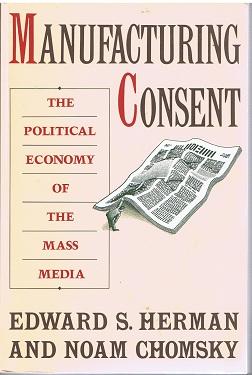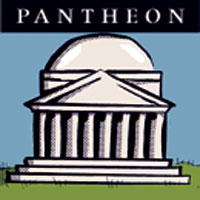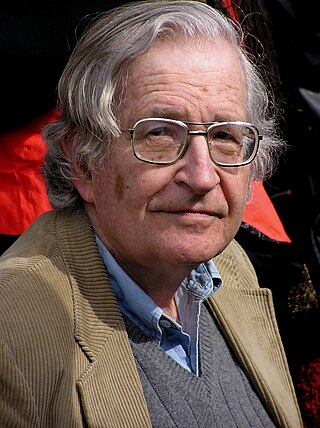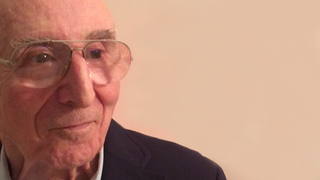
Manufacturing Consent: The Political Economy of the Mass Media is a 1988 book by Edward S. Herman and Noam Chomsky. It argues that the mass communication media of the U.S. "are effective and powerful ideological institutions that carry out a system-supportive propaganda function, by reliance on market forces, internalized assumptions, and self-censorship, and without overt coercion", by means of the propaganda model of communication. The title refers to consent of the governed, and derives from the phrase "the manufacture of consent" used by Walter Lippmann in Public Opinion (1922). Manufacturing Consent was honored with the Orwell Award for "outstanding contributions to the critical analysis of public discourse" in 1989.

Avram Noam Chomsky is an American professor and public intellectual known for his work in linguistics, political activism, and social criticism. Sometimes called "the father of modern linguistics", Chomsky is also a major figure in analytic philosophy and one of the founders of the field of cognitive science. He is a laureate professor of linguistics at the University of Arizona and an institute professor emeritus at the Massachusetts Institute of Technology (MIT). Among the most cited living authors, Chomsky has written more than 150 books on topics such as linguistics, war, and politics. In addition to his work in linguistics, since the 1960s Chomsky has been an influential voice on the American left as a consistent critic of U.S. foreign policy, contemporary capitalism, and corporate influence on political institutions and the media.

Samuel Phillips Huntington was an American political scientist, adviser, and academic. He spent more than half a century at Harvard University, where he was director of Harvard's Center for International Affairs and the Albert J. Weatherhead III University Professor.

The Trilateral Commission is a nongovernmental international organization aimed at fostering closer cooperation between Japan, Western Europe and North America. It was founded in July 1973, principally by American banker and philanthropist David Rockefeller, an internationalist who sought to address the challenges posed by the growing economic and political interdependence between the U.S. and its allies in North America, Western Europe, and Japan. The leadership of the organization has since focused on returning to "our roots as a group of countries sharing common values and a commitment to the rule of law, open economies and societies, and democratic principles".
The international community is a term used in geopolitics and international relations to refer to a broad group of people and governments of the world.

The propaganda model is a conceptual model in political economy advanced by Edward S. Herman and Noam Chomsky to explain how propaganda and systemic biases function in corporate mass media. The model seeks to explain how populations are manipulated and how consent for economic, social, and political policies, both foreign and domestic, is "manufactured" in the public mind due to this propaganda. The theory posits that the way in which corporate media is structured creates an inherent conflict of interest and therefore acts as propaganda for anti-democratic elements.

Hegemony or Survival: America's Quest for Global Dominance is a book about the United States and its foreign policy written by American political activist and linguist Noam Chomsky. It was first published in the United States in November 2003 by Metropolitan Books and then in the United Kingdom by Penguin Books. It was republished by Haymarket Books in January 2024.
Edward Samuel Herman was an American economist, media scholar and social critic. Herman is known for his media criticism, in particular the propaganda model hypothesis he developed with Noam Chomsky, a frequent co-writer. He held an appointment as Professor Emeritus of finance at the Wharton School of Business of the University of Pennsylvania. He also taught at Annenberg School for Communication at the University of Pennsylvania.
South End Press was a non-profit book publisher run on a model of participatory economics. It was founded in 1977 in Boston's South End. It published books written by political activists, notably Arundhati Roy, Noam Chomsky, bell hooks, Winona LaDuke, Manning Marable, Ward Churchill, Cherríe Moraga, Andrea Smith, Howard Zinn, Jeremy Brecher and Scott Tucker. South End Press closed in 2014.
John Meisel is a Canadian political scientist, professor, and scholar, and former chairman of the Canadian Radio-television and Telecommunications Commission.

Pantheon Books is an American book publishing imprint. Founded in 1942 as an independent publishing house in New York City by Kurt and Helen Wolff, it specialized in introducing progressive European works to American readers. In 1961, it was acquired by Random House, and André Schiffrin was hired as executive editor, who continued to publish important works, by both European and American writers, until he was forced to resign in 1990 by Random House owner Samuel Irving Newhouse, Jr. and president Alberto Vitale. Several editors resigned in protest, and multiple Pantheon authors including Studs Terkel, Kurt Vonnegut, and Barbara Ehrenreich held a protest outside Random House. In 1998, Bertelsmann purchased Random House, and the imprint has undergone a number of corporate restructurings since then. It is now part of the Knopf Doubleday Publishing Group under Penguin Random House.
Michel Crozier was a French sociologist and member of the Académie des sciences morales et politiques from 1999 until his death. He also was a fellow of the American Academy of Arts and Sciences, a member of the American Philosophical Society, and a laureate of the Prix Alexis de Tocqueville (1997).

Noam Chomsky is an intellectual, political activist, and critic of the foreign policy of the United States and other governments. Noam Chomsky describes himself as an anarcho-syndicalist and libertarian socialist, and is considered to be a key intellectual figure within the left wing of politics of the United States.
"Socialism for the rich and capitalism for the poor" is a classical political-economic argument asserting that, in advanced capitalist societies, state policies assure that more resources flow to the rich than to the poor, for example in the form of transfer payments.
This is a list of writings published by the American writer Noam Chomsky.

Gaza in Crisis: Reflections on Israel's War against the Palestinians is a 2010 collection of interviews and essays from Noam Chomsky and Ilan Pappé that examine Israel's Operation Cast Lead and attempts to place it into the context of Israeli–Palestinian conflict. The book was edited by Frank Barat, who had conducted his first e-mail interview on the subject with Chomsky in 2005, as a result of his joint dialogue with Chomsky and Pappé, previously published in French as Le Champ du possible, which forms the heart of the work.

Occupy is a short study of the Occupy movement written by the American academic and political activist Noam Chomsky. Initially published in the United States by the Zuccotti Park Press as the first title in their Occupied Media Pamphlet Series in 2012, it was subsequently republished in the United Kingdom by Penguin Books later that year.

Lawrence E. Harrison was an American scholar known for his work on international development and being former USAID mission director to various Latin American countries. He is the past director of the Cultural Change Institute at the Fletcher School, Tufts University, where he also served as an adjunct lecturer. He is the author of various books and articles, most notably his work with Samuel P. Huntington, Culture Matters.

The Political Economy of Human Rights is a 1979 two-volume work by Noam Chomsky and Edward S. Herman. The authors offer a critique of United States foreign policy, particularly in Indochina.

Requiem for the American Dream: The 10 Principles of Concentration of Wealth & Power is a book by political activist and linguist Noam Chomsky. It was created and edited by Peter Hutchison, Kelly Nyks, and Jared P. Scott. It lays out Chomsky's analysis of neoliberalism. It focuses on the concentration of wealth and power in United States over the past forty years, analyzing the income inequality. The book was published by Seven Stories Press in 2017.













